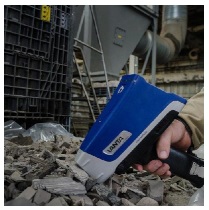HELPFUL HINTS TO IMPROVED PROFITABILITY
POSTED BY MAXIME LE BRETON
The quotation, ”knowledge is power”, commonly attributed to Sir Francis Bacon, is a byword in many facets of life, and in the catalytic converter recycling market it has become equally important. In this article we offer some suggestions where, by improving your knowledge, you can greatly increase your profits.
Know Your Products
To ensure you are commanding the best possible price from your customers, it is important that you keep track of your catalytic converter stocks with detailed unit counts. This then will give you the ability to validate any inconsistencies and to calculate your can average by each material type from your returns.
Buyers typically will, for example, include “aftermarket” units in their calculation as this allows them to present a better price per unit in order to win a bid, whereas in reality, the true can average you receive is lower than the materials warrant. Without detailed data on the make up and grades of your stock, this type of inaccuracy will never come to light.
Know Your Markets
We frequently talk and write about “the Platinum Group Metals Market” as if it is just a single entity; in fact, from a catalytic converter recycling point of view, it consists of 3 distinct sectors - platinum, palladium and rhodium - and the prices of each can trend very differently. Thus, those involved in the selling of scrap catalysts should have an understanding of the metal content of their stocks in order to maximize returns.
This knowledge is based on the type and age of vehicle being scrapped. Up until the early years of the 21st Century, converters primarily used platinum as the catalyst metal; thus, if the majority of your scrap converters are of that era, then, obviously it is the platinum market you should follow. If the platinum market is trending down, then it is better, if cash flow allows, to hold on to your catalytic converters until prices improve. For example, on 15th July 2021, the platinum price was $1,153 / ounce, but by 27th July this had fallen to $1.054 / ounce - a decline of nearly 9%.
After the turn of the century, though, many manufacturers invested heavily in new processes to take advantage of the significant cost advantages that platinum could provide at the time. Rhodium also came to the table as a component in a more complex mix of catalysts. For vehicles of this latest period, then, knowledge of all 3 markets, and in particular palladium, is a pre-requisite for best returns.
Know that Assaying is Best
The technology of assaying - the process of using a small sample of catalytic converter ceramic to assess the overall value of any batch - has become the mainstay of the recycling industry and if you are still selling by unit, grade or code, it is time to switch! The accuracy and transparency that is nowadays associated with assaying means you can generate up to 30% more profit from your catalysts. In addition, assaying also give you flexibility in determining when to cash out on the individual precious metals. If the price of one is trending down, for example, you can bank that in the hope that the market will improve at a future date. In addition, the technology has improved to the extent that it is possible to assay as little as 200 pounds of ceramic, with results and final settlement within a few days.
Know Material Dismantling
How catalytic converters are processed and dismantled can make a big difference to profitability. If the ceramic is damaged or broken during dismantling, significant value can be lost and if you find that more than 8% of your batch consists of partials, it suggests that your cutting and dismantling procedures should be re-assessed. Also, the careful trimming of pipes as close as possible to the shell will enable you to fit more converters within a container, thus reducing transportation costs.
Know Your Buyer
There is so much to be gained for both parties in developing a trustworthy, open, long-term relationship with a professional, established buyer. His technological expertise and processing efficiencies will ensure the best possible returns for you and his experience and knowledge of the industry will help you gain more information and data to assist you in your dealings.
It’s not always easy to embrace change, but change is a good thing in business. A quest for more knowledge helps businesses survive in an ever-increasing hostile world, and finding new ways to stay ahead is critical to future success. We hope that some of our “knowledge tips” will help you build a better, more profitable business in the future.

























